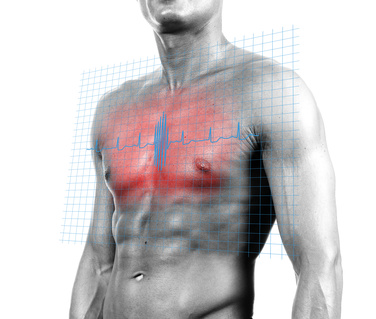Stroke - symptoms, prevention and treatment
A stroke is caused by interruption of blood flow to the brain. As brain cells are deprived of blood they become starved of oxygen, suffer damage and begin to die. As the brain controls all bodily functions, brain damage will result in impairment of these functions. How extensive the impairment and the functions affected will depend on the area of the brain involved. There are many forms of stroke. One of the most common forms is an Ischemic stroke where the interruption of blood supply is caused by a blockage in blood vessels. This is usually the result of a blood clot which travels along the blood vessels and eventually ends up blocking blood vessels supplying the brain. Another form is a hemorrhagic stroke where the blood supply is cut off as a result of bleeding in the membrane surrounding the brain or in the brain itself. Ischemic stroke is by far the more common and can also be caused by thickening of the arteries through build up of cholesterol in the arteries. Hemorrhagic stroke is often the result of an aneurysm where a weak area of a blood vessel ruptures causing bleeding.
A stroke is always a medical emergency and prompt medical attention is vital to limit damage and restrict permanent and irreversible injury. Consequently it is extremely important to quickly identify the symptoms of a stroke.
A stroke may be preceded by what's called a Transient Ischemic attack (TIA)- this is a minor stroke the effects of which may last just a short time - as short as just a few minutes. Despite its transient nature a TIA should always be treated seriously as it may be a sign of a more serious attack to follow.
Symptoms of a stroke include:
Facial weakness or paralysis often on one side. This may be accompanied by drooping mouth or eyes.
Numbness or paralysis of arms or legs. A useful test is to ask the patient to raise both arms.
Confusion and difficulty speaking or understanding.
Headache, dizziness, loss of vision or difficulty swallowing.
Around 25% of patients die within a month of an ischemic stroke while the mortality rate for Hemorrhagic stroke is even higher with almost 75% dying as a result. Those who survive may be left with a range of physical disabilities including paralysis and speech difficulties etc. There is a significantly increased risk of a further stroke within a year of the first attack.
Among patients who survive a stroke there is usually some improvement in the first month and the extent of this improvement can be a guide to expected future improvement. The brain is an amazingly adaptable organ. While dead brain cells can never recover, partly damaged ones may make a partial recovery over time. Undamaged areas of the brain may also adapt and take on functions of damaged areas. Treatment may include long term physiotherapy, speech therapy etc.
There are many factors that determine the risk of having a stroke. Some cannot be controlled - these include family history and ethnic origin. For instance it's believed that being of Asian or African descent increases chances of stroke. Conditions such as diabetes, hypertension (High blood pressure) and high cholesterol also significantly increase the risk of a stroke. Consequently lifestyle factors such as poor (high fat) diet, inadequate exercise, smoking and excessive alcohol consumption increase the risk.
The risk of stroke increases with age but lifestyle factors have resulted in increasing incidence of stroke at younger ages. The impact of a stroke can be devastating, with lives changed irrevocably in an instant. Prevention through appropriate changes in lifestyle is therefore vital.
Warren Tattersall has been a full time nutritional consultant for over a decade and works with people all over the world to help them improve their health, increase their personal energy levels and to use supplements to assist with diet related health issues.
This site has many helpful tips about nutrition and free health plans to reduce your high blood pressure and help you with a healthy heart. Not only will you get valuable cardiovascular problems health tips about fish oil for cardiovascular health buy you can also download your free Healthy Heart report.
To have a free personal consultation with him to learn how incorporating nutritional supplements may improve your health concerns just visit “The Health Success Site” and download the free health report available there, or email warren@TheHealthSuccessSite.com to request a personal one-on-one consultation by email or phone.
the A to Z directory of dealing with Health Problems & Self Care Strategies for natural remedies to your health issues.

Subscribe to get your weekly "Health Success Magazine" with a new complete & comprehensive Health Report in every edition!

to “Your Health Success”
our weekly F’R’E’E’ Newsletter
If you would like a free no-obligation private consultation or to contact Warren Tattersall for more information, please click here >> Contact Us

Click the books above to learn more about how we treat CFS naturally, to get your life back!
You will find many assorted Health Reports available for download free to you on this website!
Our free Health Success Reports are each available for you to download when you subscribe to receive them and their 7 part eCourse.
You can unsubscribe at any time, but we are sure you will want to receive all the email lessons of these informative ecourses.
Read more HERE to select the REPORT subjects of most interest (or concern) to you.









